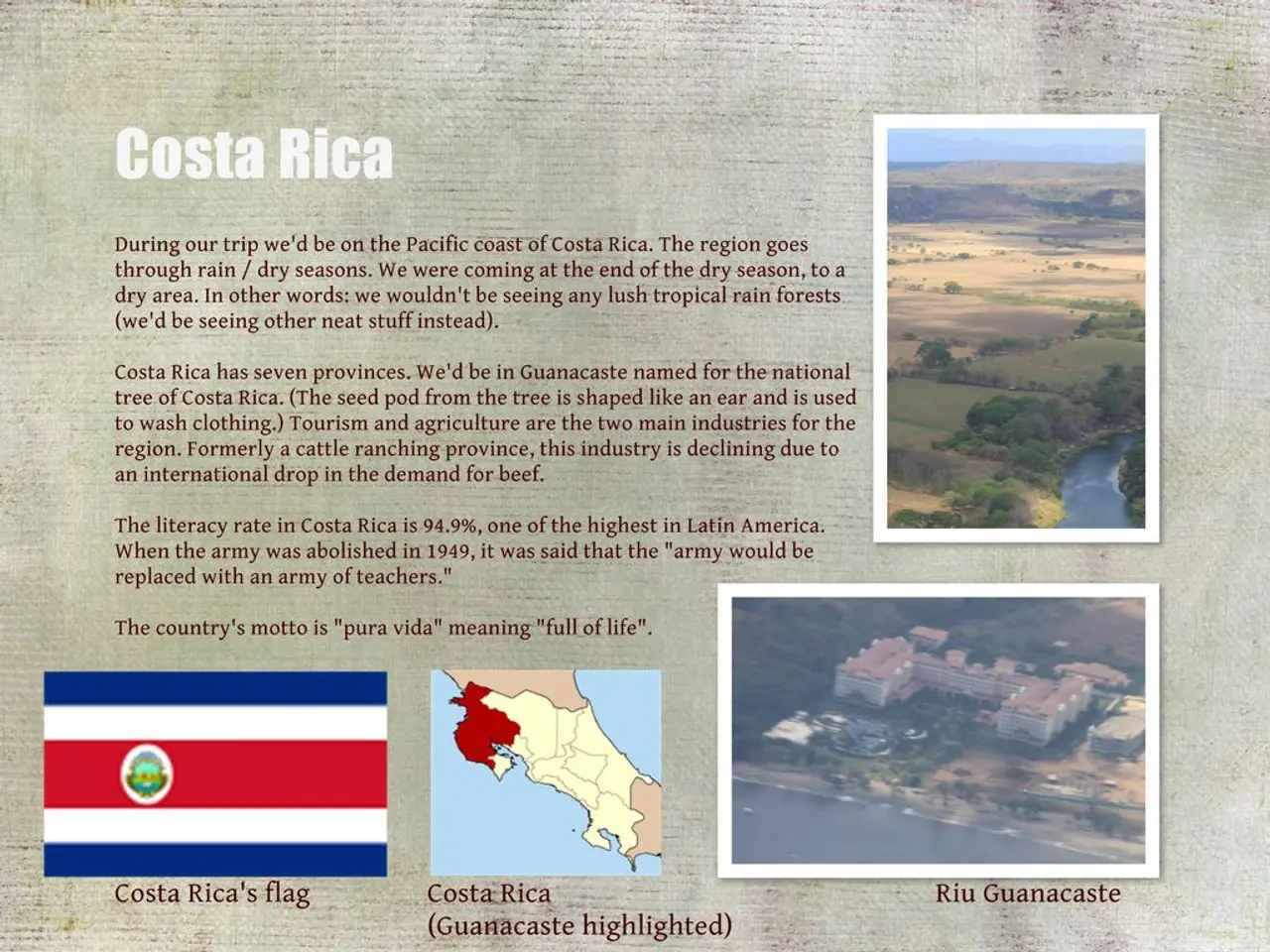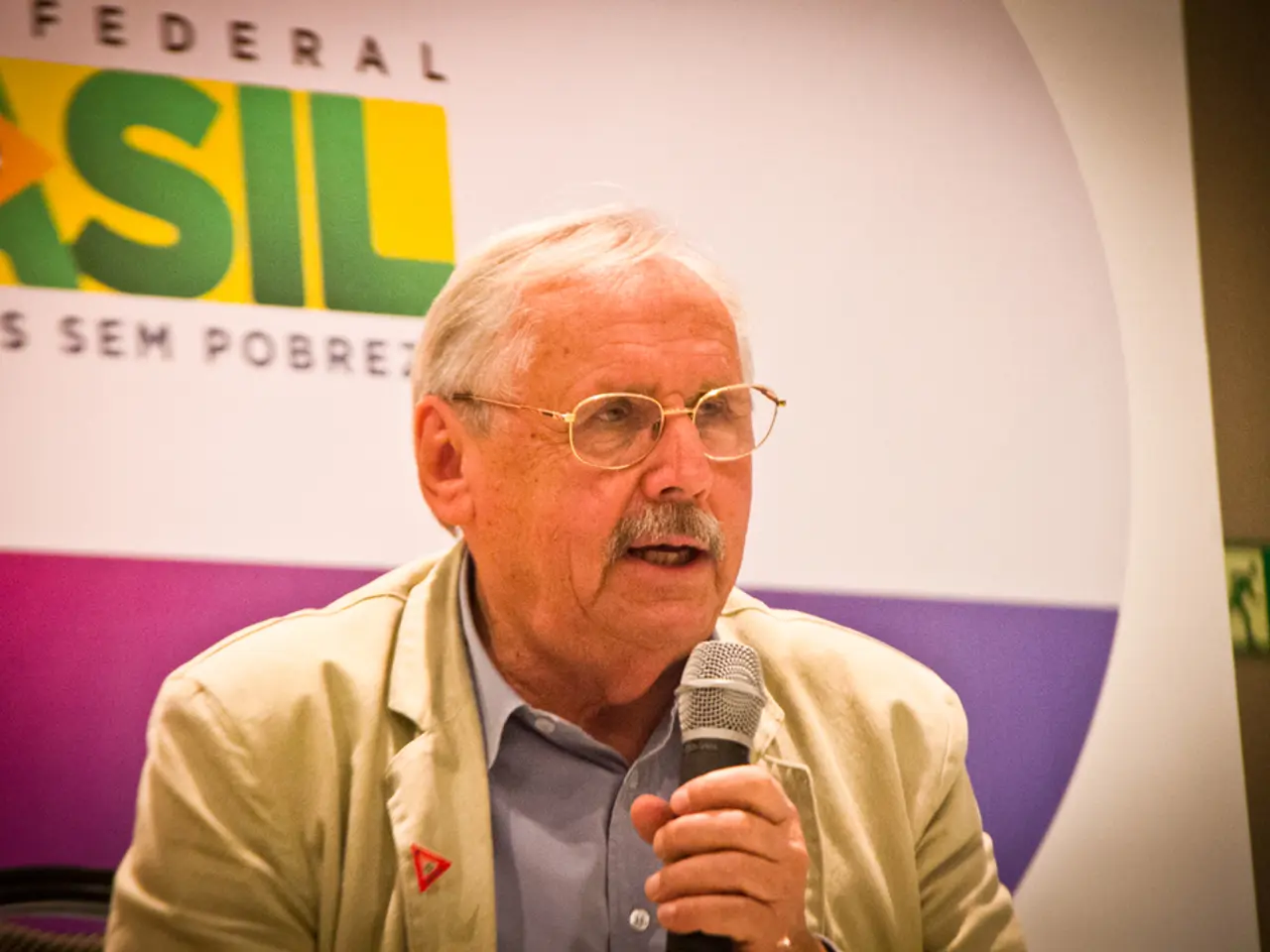Safety Measures Over Freedom of Rights: The Ethical Predicament of CECOT
El Salvador's Terrorism Confinement Center (CECOT) Under Fire for Human Rights Abuses
El Salvador's Terrorism Confinement Center (CECOT) is currently under scrutiny for alleged human rights violations. The center, constructed in 2023 as a result of President Nayib Bukele's mass crackdown on gang violence, has been accused of severe beatings, psychological torture, extreme overcrowding, and inhumane treatment.
The United Nations, Human Rights Watch, and Amnesty International have all documented cases of such abuses. The UN has reported over 66 cases of children subjected to torture, ill-treatment, and appalling conditions, while Human Rights Watch has documented over 3,300 cases of children being detained with no gang affiliation.
The cells within CECOT are basic, featuring large metal shelves as beds with no mattresses or pillows. Inmates are assigned to one of eight sectors, each sector holding about 80 inmates per cell, and they never leave their sector. The lack of space and resources has led to extreme overcrowding, unhygienic conditions, and inadequate access to food and medical care while in custody.
Former detainees have alleged systematic violence from guards and intimidation through threats of transfer to cells with gang members. These reports have raised serious concerns about the risk of torture and ill-treatment within the prison.
Regarding the detention of children and non-gang affiliated individuals, there is evidence that many of the detainees—including Venezuelan migrants expelled by the U.S.—were not necessarily gang members. This raises concerns about the wrongful detention of people who are not involved in criminal activity or gang affiliation.
The Bukele regime views incidents of wrongful imprisonment as collateral damage, but stories like Juan Carlos's, a middle-aged resident of El Salvador who was wrongfully arrested in early 2024 and developed an infection in his right leg due to the terrible conditions in the detention centers, highlight the need for reform.
CECOT is the largest detention center in the world, located deep in the forests of El Salvador. It houses more than 1,000 security personnel and is surrounded by three meters of electrified fencing and nine meters of concrete wall. The center was initially established to combat gang violence, but the allegations of human rights abuses have sparked international concern.
In summary, human rights groups call for accountability, transparency, and cessation of such practices at CECOT. The continued operation of the center must ensure that the people imprisoned are truly the worst of the worst, and the hammer of justice doesn't fall on innocent civilians, including children.
- "These human rights abuses at El Salvador's Terrorism Confinement Center (CECOT) demand attention from the spotlight of news and editorial sections, highlighting the need for thorough investigations."
- "Considering the severity of the alleged human rights violations, the involvement of the United Nations, Human Rights Watch, and Amnesty International in the spotlight of the general-news and politics is crucial."
- "The conversation around CECOT's history and culture is essential to understanding the current situation, as the center was built in response to President Nayib Bukele's crackdown on gang violence."
- "Video documentation of the inhumane conditions within the center could serve as vital evidence in the spotlight of court proceedings, proving the cases of systematic violence and torture alleged by former detainees."
- "The newsworthy topics of sports and culture often divert our focus, but the plight of the detainees at CECOT, including children and non-gang affiliated individuals, should not be ignored or relegated to the margins of our attention."







